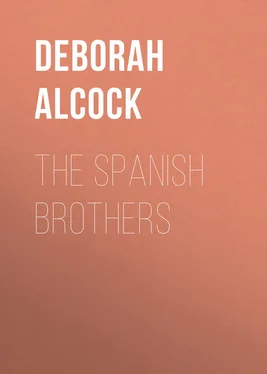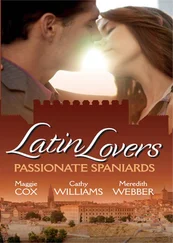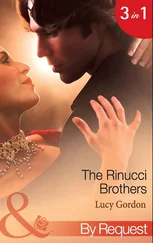Deborah Alcock - The Spanish Brothers
Здесь есть возможность читать онлайн «Deborah Alcock - The Spanish Brothers» — ознакомительный отрывок электронной книги совершенно бесплатно, а после прочтения отрывка купить полную версию. В некоторых случаях можно слушать аудио, скачать через торрент в формате fb2 и присутствует краткое содержание. Жанр: foreign_antique, foreign_prose, foreign_language, на английском языке. Описание произведения, (предисловие) а так же отзывы посетителей доступны на портале библиотеки ЛибКат.
- Название:The Spanish Brothers
- Автор:
- Жанр:
- Год:неизвестен
- ISBN:нет данных
- Рейтинг книги:4 / 5. Голосов: 1
-
Избранное:Добавить в избранное
- Отзывы:
-
Ваша оценка:
- 80
- 1
- 2
- 3
- 4
- 5
The Spanish Brothers: краткое содержание, описание и аннотация
Предлагаем к чтению аннотацию, описание, краткое содержание или предисловие (зависит от того, что написал сам автор книги «The Spanish Brothers»). Если вы не нашли необходимую информацию о книге — напишите в комментариях, мы постараемся отыскать её.
The Spanish Brothers — читать онлайн ознакомительный отрывок
Ниже представлен текст книги, разбитый по страницам. Система сохранения места последней прочитанной страницы, позволяет с удобством читать онлайн бесплатно книгу «The Spanish Brothers», без необходимости каждый раз заново искать на чём Вы остановились. Поставьте закладку, и сможете в любой момент перейти на страницу, на которой закончили чтение.
Интервал:
Закладка:
Both Juan and Carlos still clung fondly to their early dream; though their wider knowledge had necessarily modified some of its details. Carlos, at least, was not quite so confident as he had once been about the existence of El Dorado; but he was as fully determined as Juan to search out the mystery of their father's fate, and either to clasp his living hand, or to stand beside his grave. The love of the brothers, and their trust in each other, had only strengthened with their years, and was beautiful to witness.
Occasional journeys to Seville, and brief intervals of making holiday there, varied the monotony of their college life, and were not without important results.
It was the summer of 1556. The great Carlos, so lately King and Kaiser, had laid down the heavy burden of sovereignty, and would soon be on his way to pleasant San Yuste, to mortify the flesh, and prepare for his approaching end, as the world believed; but in reality to eat, drink, and enjoy himself as well as his worn-out body and mind would allow him. Just then our young Juan, healthy, hearty, hopeful, and with the world before him, received the long wished-for appointment in the army of the new King of all the Spains, Don Felipe Segunde.
The brothers have eaten their last temperate meal together, in their handsome, though not very comfortable, lodging at Alcala. Juan pushes away the wine-cup that Carlos would fain have refilled, and toys absently with the rind of a melon. "Carlos," he says, without looking his brother in the face, "remember that thing of which we spoke;" adding in lower and more earnest tones, "and so may God remember thee."
"Surely, brother. You have, however, little to fear."
"Little to fear!" and there was the old quick flash in the dark eyes. "Because, forsooth, to spare my aunt's selfishness and my cousin's vanity, she must not be seen at dance, or theatre, or bull-feast? It is enough for her to show her face on the Alameda or at mass to raise me up a host of rivals."
"Still, my uncle favours you; and Doña Beatriz herself will not be found of a different mind when you come home with your promotion and your glory, as you will, my Ruy!"
"Then, brother, watch thou in my absence, and fail not to speak the right word at the right moment, as thou canst so well. So shall I hold myself at ease, and give my whole mind to the noble task of breaking the heads of all the enemies of my liege lord the king."
Then, rising from the table, he girt on his new Toledo sword with its embroidered belt, threw over his shoulders his short scarlet cloak, and flung a gay velvet montero over his rich black curls. Don Carlos went out with him, and mounting the horses a lad from their country-home held in readiness, they rode together down the street and through the gate of Alcala; Don Juan followed by many an admiring gaze, and many a hearty "Vaya con Dios," 2 2 Go with God.
from his late companions.
V.
Don Carlos Forgets Himself
"A fair face and a tender voice had made me mad and blind."
Don Carlos Alvarez found Alcala, after his brother's departure, insupportably dull; moreover, he had now almost finished his brilliant university career. As soon, therefore, as he could, he took his degree as Licentiate of Theology. He then wrote to inform his uncle of the fact; adding that he would be glad to spend part of the interval that must elapse before his ordination at Seville, where he might attend the lectures of the celebrated Fray Constantino Ponce de la Fuente, Professor of Divinity in the College of Doctrine in that city. But, in fact, a desire to fulfil his brother's last charge weighed more with him than an eagerness for further instruction; especially as rumours that his watchfulness was not unnecessary had reached his ears at Alcala.
He received a prompt and kind invitation from his uncle to make his house his home for as long a period as he might desire. Now, although Don Manuel was highly pleased with the genius and industry of his younger nephew, the hospitality he extended to him was not altogether disinterested. He thought Carlos capable of rendering what he deemed an essential service to a member of his own family.
That family consisted of a beautiful, gay, frivolous wife, three sons, two daughters, and his wife's orphan niece, Doña Beatriz de Lavella. The two elder sons were cast in their father's mould; which, to speak truth, was rather that of a merchant than of a cavalier. Had he been born of simple parents in the flats of Holland or the back streets of London, a vulgar Hans or Thomas, his tastes and capabilities might have brought him honest wealth. But since he had the misfortune to be Don Manuel Alvarez, of the bluest blood in Spain, he was taught to look on industry as ineffably degrading, and trade and commerce scarcely less so. Only one species of trade, one kind of commerce, was open to the needy and avaricious, but proud grandee. Unhappily it was almost the only kind that is really degrading – the traffic in public money, in places, and in taxes. "A sweeping rain leaving no food," such traffic was, in truth. The Government was defrauded; the people, especially the poorer classes, were cruelly oppressed. No one was enriched except the greedy jobber, whose birth rendered him infinitely too proud to work, but by no means too proud to cheat and steal.
Don Manuel the younger, and Don Balthazar Alvarez, were ready and longing to tread in their father's footsteps. Of the two pale-faced dark-eyed sisters, Doña Inez and Doña Sancha, one was already married, and the other had also plans satisfactory to her parents. But the person in the family who was not of it was the youngest son, Don Gonsalvo. He was the representative, not of his father, but of his grandfather; as we so often see types of character reproduced in the third generation. The first Conde de Nuera had been a wild soldier of fortune in the Moorish wars, fierce and fiery, with strong unbridled passions. At eighteen, Gonsalvo was his image; and there was scarcely any mischief possible to a youth of fortune in a great city, into which he had not already found his way. For two years he continued to scandalize his family, and to vex the soul of his prudent and decorous father.
Suddenly, however, a change came over him. He reformed; became quiet and regular in his conduct; gave himself up to study, making extraordinary progress in a very short time; and even showed what those around him called "a pious disposition." But these hopeful appearances passed as suddenly and as unaccountably as they came. After an interval of less than a year, he returned to his former habits, and plunged even more madly than ever into all kinds of vice and dissipation.
His father resolved to procure him a commission, and send him away to the wars. But an accident frustrated his intentions. In those days, cavaliers of rank frequently sought the dangerous triumphs of the bull-ring. The part of matador was performed, not, as now, by hired bravos of the lowest class, but often by scions of the most honourable houses. Gonsalvo had more than once distinguished himself in the bloody arena by courage and coolness. But he tempted his fate too often. Upon one occasion he was flung violently from his horse, and then gored by the furious bull, whose rage had been excited to the utmost pitch by the cruel arts usually practised. He escaped with life, but remained a crippled invalid, apparently condemned for the rest of his days to inaction, weakness, and suffering.
His father thought a good canonry would be a decent and comfortable provision for him, and pressed him accordingly to enter the Church. But the invalided youth manifested an intense repugnance to the step; and Don Manuel hoped that the influence of Carlos would help to overcome this feeling; believing that he would gladly endeavour to persuade his cousin that no way of life was so pleasant or so easy as that which he himself was about to adopt.
Читать дальшеИнтервал:
Закладка:
Похожие книги на «The Spanish Brothers»
Представляем Вашему вниманию похожие книги на «The Spanish Brothers» списком для выбора. Мы отобрали схожую по названию и смыслу литературу в надежде предоставить читателям больше вариантов отыскать новые, интересные, ещё непрочитанные произведения.
Обсуждение, отзывы о книге «The Spanish Brothers» и просто собственные мнения читателей. Оставьте ваши комментарии, напишите, что Вы думаете о произведении, его смысле или главных героях. Укажите что конкретно понравилось, а что нет, и почему Вы так считаете.












